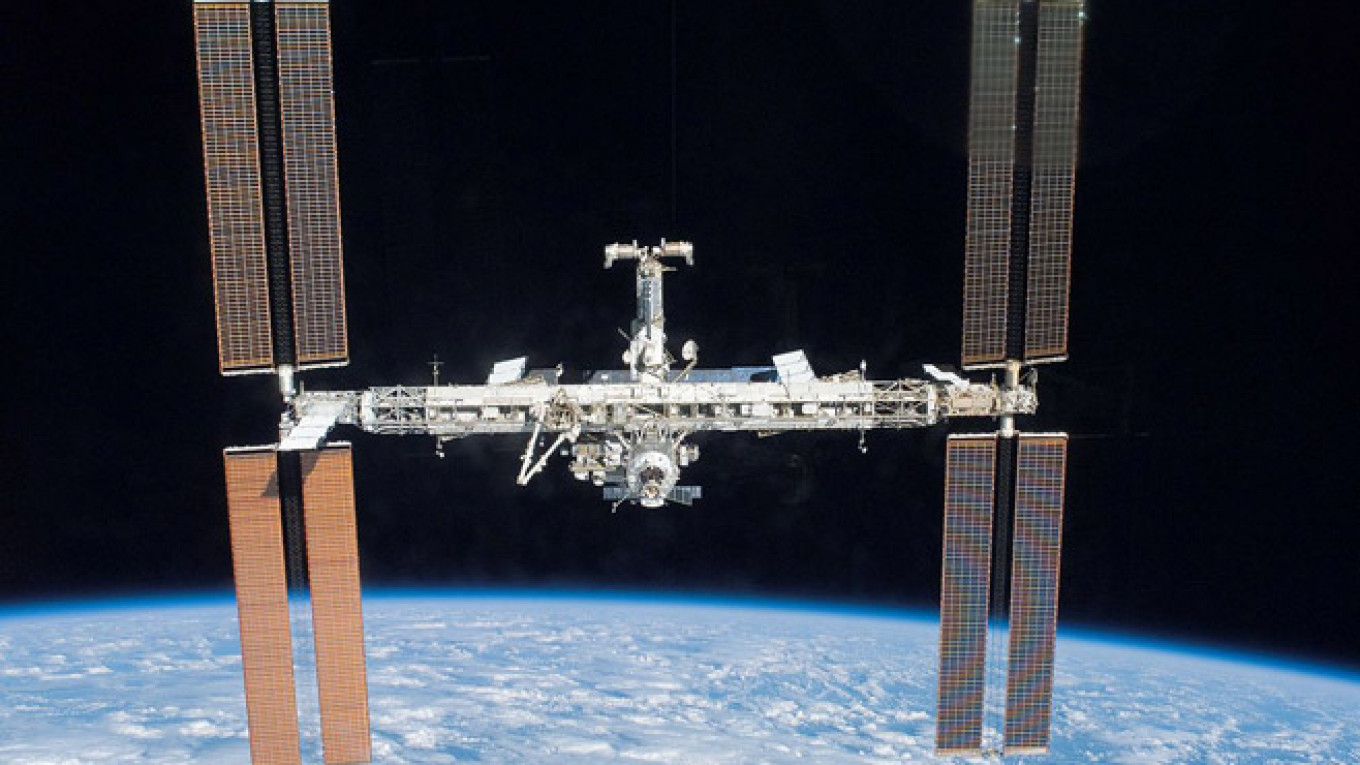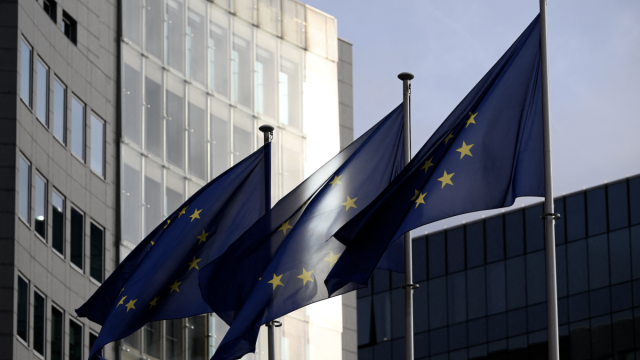Special report for MT
Even as the U.S.-Russian bilateral relationship tears at the seams, NASA and the Federal Space Agency, or Roscosmos, are pooling their resources and launching new joint projects aboard the International Space Station, or ISS, in a drive to make the most of the crucial project while it lasts, Russian and U.S. space officials close to the agencies said.
"We have had a strong partnership and we are working to make sure we get full use out of the space station for quite a while," Sean Fuller, NASA's director of human spaceflight in Russia told the Moscow Times on Thursday.
Having been a seemingly unshakable cornerstone of U.S.-Russian cooperation for nearly 20 years, the space partnership has recently been forcefully politicized by its political masters, after the political crisis in Ukraine and Russia's annexation of Crimea sparked the iciest standoff Russia and the West have seen since the Cold War. The crisis has so far seen NASA ordered by the U.S. government to cut off all non-ISS related ties with Roscosmos, a Russian attempt to ransom U.S. GPS stations on Russian territory for the right to build its own Glonass monitoring stations in the U.S. and a restriction of aerospace trade between the two nations.
But, perhaps most concerning for NASA and Roscosmos, who have consistently sworn that their relationship has remained sound throughout the political struggle in Eastern Europe, was a bombastic statement by Deputy Prime Minister Dmitry Rogozin in mid-May — that Russia was not interested in accepting a NASA proposal to extend the life of ISS beyond 2020.
Although head leadership of both NASA and Roscosmos have remained silent on the issue of ISS extension, both agencies are now looking to make the most out of the time they have left together, regardless of how long that may be. Hot on the heels of a meeting with program directors representing the 15 nations involved in ISS, Fuller said "each of the partners is working within their government" on the issue of extension beyond 2020. From an engineering standpoint, much of the legwork has already been done, and ISS could continue on well into the 2020s, he added.
ISS is an unprecedented human achievement: a permanently manned outpost in space that has facilitated peaceful cooperation between the high-tech and scientific bases of 15 nations, as well as the largest international cooperative project ever undertaken by nations during peacetime.
As Russia pivots east, courting China in a number of spheres — ranging from gas deals to future space partnership agreements — Fuller said that NASA is intensifying its cooperation with Roscosmos aboard the ISS, along with the other 13 partners — which include the European, Canadian and Japanese space agencies — "to make sure we get full use out of [ISS] for quite a while."
"In April, after the announcement of sanctions by NASA, we discussed the organization of joint experiments with our U.S. partners as part of a joint working group on space biology and medicine," Izvestia quoted Oleg Orlov, the deputy director of the Russian Academy of Science's Institute of Biomedical Problems, as saying Tuesday.
"In the process of informal dialogue, the Americans have recently sought to demonstrate … that the announced sanctions are just a courtesy to Washington bureaucrats," Orlov added.
First of all, NASA and Roscosmos have spent the last few months finalizing an ambitious medical research agenda to be carried out through the so-called "one year mission" slated to launch in March 2015. Astronaut Scott Kelly and cosmonaut Mikhail Korniyenko — both flight-hardened veterans of earlier ISS expeditions — will spend one year aboard the space station serving as guinea pigs for a U.S.-Russian medical research team. On Thursday, Interfax cited a source in the Russian space program saying that NASA and Roscosmos are also in the process of selecting a crew for a second year-long mission following the return of Kelly and Korniyenko in 2016.
One of the major concerns facing the medical community with regard to deep space missions is how the crew's bodies will react to landing on another planet, such as Mars, Fuller said. Currently, when astronauts and cosmonauts return from ISS to Earth, they are met on the ground by teams of medical personnel who not only must assist their egress from the capsule, but help them learn to walk again after spending months in a zero-gravity environment.
The intrepid team of explorers who one day set foot on Mars will not have the luxury of a welcome party, and space agencies eying the rust-colored locale must develop techniques to combat the muscle decay and related health issues faced by astronauts and cosmonauts now, before beginning to work on a mission to Mars.
The teams are also sharing resources for research on bringing animals to space, Orlov said. "We have long had the idea of creating such a laboratory on ISS, but ultimately failed to implement it … the U.S. in this regard is more advanced," he said, adding that there are now discussions of launching a joint research program using U.S. modules and equipment.
"I kind of equate it to crowdsourcing," Fuller said — there is a limit to the resources that can be flown up to the space station, and "the different laboratories provided by the different partners have different capabilities."
Yury Karash, a space policy analyst with the Russian Academy of Cosmonautics, took a more restrained view of these developments. "At best, this is an intensification of cooperation rather than an expansion, since it is not as if the U.S. and Russia are jointly designing new modules for the space station," but rather doing more with what they already have, he told The Moscow Times on Thursday.
See also:
SpaceX Unveils Spaceship Able to End U.S. Reliance on Russian Craft
Contact the author at [email protected]
A Message from The Moscow Times:
Dear readers,
We are facing unprecedented challenges. Russia's Prosecutor General's Office has designated The Moscow Times as an "undesirable" organization, criminalizing our work and putting our staff at risk of prosecution. This follows our earlier unjust labeling as a "foreign agent."
These actions are direct attempts to silence independent journalism in Russia. The authorities claim our work "discredits the decisions of the Russian leadership." We see things differently: we strive to provide accurate, unbiased reporting on Russia.
We, the journalists of The Moscow Times, refuse to be silenced. But to continue our work, we need your help.
Your support, no matter how small, makes a world of difference. If you can, please support us monthly starting from just $2. It's quick to set up, and every contribution makes a significant impact.
By supporting The Moscow Times, you're defending open, independent journalism in the face of repression. Thank you for standing with us.
Remind me later.






